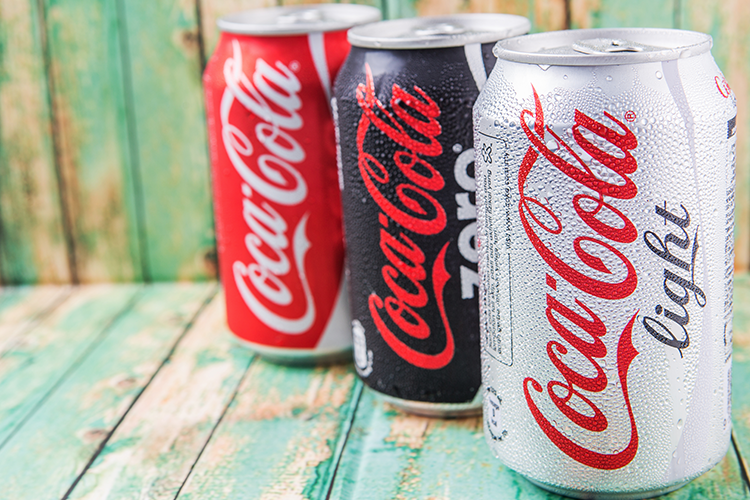Blog
Diet drinks shouldn’t be considered healthy
 So, sugar-sweetened beverages (SSB) aren’t great. And we consume a lot.
So, sugar-sweetened beverages (SSB) aren’t great. And we consume a lot.
In Australia, 52% of added sugar consumed is delivered by soft drinks, fruit-flavored drinks, sports/energy drinks, and ready-to-drink coffees and tea consumption.1
Yet these drinks offer little, if any, nutrition other than energy, and their regular consumption is linked to weight gain.
What is an alternative, when wanting that sweet, fizzy drink?
Many turn to artificially sweetened beverages. However, a review recently published concluded that diet drinks mightn’t actually help with weight loss, and should not be promoted as part of a healthy diet.2
The not-so-healthy alternative
Whilst considered okay for those wanting to wean off multiple cans of SSB a day, artificially sweetened diet drinks shouldn’t be considered ‘healthier’. They provide less energy, yes, but energy value is not the be-all-end-all marker of how good a food or drink is.
In fact, the researchers found that diet drinks could contribute to increased overall food and drink consumption.
“A common perception, which may be influenced by industry marketing, is that because ‘diet’ drinks have no sugar they must be healthier and aid weight loss when used as a substitute for full-sugar versions. However, we found no solid evidence to support this,” said Professor Christopher Millet, one of the study’s authors in a press release.
That, and the lack of actual sugar delivered may prompt urges by the body to consume more sweet stuff in compensation, having tasted the sweetness but without the expected physiological result.
Many studies purporting the benefits of diet drinks were not of high quality, and others are industry-funded. And there is concern that artificially sweetened beverages aren’t included in any existing or proposed ‘sugar-taxes’, as, well, they don’t contain sugar, and there is an environmental impact to consider in the manufacturing of sugarless drinks.
The authors suggest by including artificially sweetened beverages in the tax mix, people will be more likely to consume water (and let’s be honest, it’s the best of beverages for health).
Artificial sweeteners may also indirectly contribute to weight gain, like messing with the intestinal microbiome or prompting glucose intolerance, for example.
A better alternative?
What to do? Real food. Real drink. Nutrient dense, minimally processed stuff. We are wired to want the sweet stuff, and whilst a little (artificially or otherwise) is certainly not the end of the world, it may be better to work toward reducing regular consumption, especially over the long-term.
Consider over time:
- Reducing the desire for sweetness
- Increasing your sensitivity to sweetness.
Adapting taste buds and desire for less intense sweetness is a gradual process (at least for some of us), while simultaneously slowly re-working buying and eating habits and drivers.
Want a better alternative? Try:
- Water
- Water infused with real fruit pieces and fresh herbs, like berries, lemon and mint, or cucumber and basil
- Soda water, on its own or infused as suggested above
- Herbal tea
By Angela Johnson (BHSc Nut. Med.)
References:
- ABS 2016, Australian Health Survey: Consumption of added sugars, 2011-12, viewed 10 January 2017, <http://www.abs.gov.au/ausstats/abs@.nsf/mf/4364.0.55.011>
- Borges, MC, Louzada, ML, de Sá, TH, Laverty, AA, Parra, DC, Garzillo, JF, Monteiro, CA, & Millett, C 2017, ‘Artificially Sweetened Beverages and the Response to the Global Obesity Crisis’, PLoS Medicine, vol. 14, no. 1, pp. 1-9.











